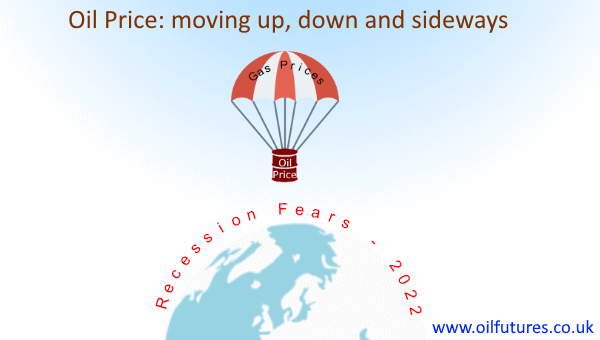The price of crude oil that is currently at the mercy of the combination of high gas prices, never-ending global political uncertainties and the fear of recession, took yet another dive, when major markets opened on Monday.
As of 13:30 GMT, the prices of WTI and Brent recorded $87.31 and $93.15 respectively. The price of LNG, liquified natural gas, was $8.48, almost doubled from what it was a year ago.
If the fears of the recession is the dominant factor in bringing down the price of crude oil, reflecting the poor demand, the price of gas potentially can trigger off the inhibiting effect.
In this context, it is highly unlikely that we will witness yet another oil price crash in the coming weeks. High gas prices have made oil more attractive for the industrialists to bring down rising energy costs - as the last resort.
The IEA, International Energy Agency, and the OPEC+ , meanwhile, are diverging with their immediate oil demand predictions; the former estimates a substantial increase, cloaked in a its usual warning about the inevitable, corresponding environmental damage and the latter sees a significant drop in demand due to evolving economic conditions.
The OPEC+, however, does not seem to be leaning towards a production cut, fearing a global backlash; it will still stick to the modest increase in output, collectively agreed at the beginning of this month.
With no amicable, long-lasting solution to the Ukraine-Russia crisis, the energy spectre in Europe can only get worse in the coming colder months, starting from October; the situation is bad even in the unusually warm summer.
At present, there seems to be no pragmatic move in place to avert the crisis, apart from the dreaded scenario of rationing the fuel.
Since the start of the war, Russia, time and again, has thrown down the gauntlet to the European politicians during the energy crisis: the measures range from turning the taps on and off at will to demanding the payments in rouble, the Russian national currency; some countries buckled under pressure, fearing a social backlash over doing nothing.
Judging by the way Russian coffers are being inflated, despite the unprecedented sanctions by the West, the world's biggest nation appears to be pulling the strings, cashing in on Europe's obvious anxieties over the energy shortages.
Despite its best efforts, not only did the West fail to drive a wedge between Russia and the OPEC, but also failed to get the latter to increase the production substantially in order to tame the inflation.
All in all, the price of WTI is unlikely to fall below $80 in the current circumstances; the producers can still make hay while the sun shines.







